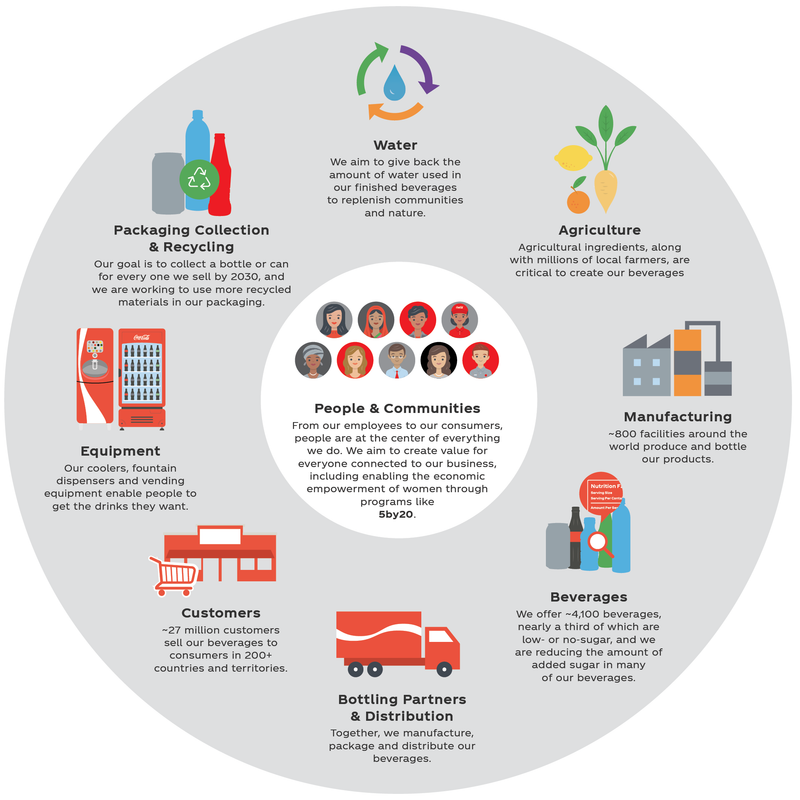Coca Cola Value Chain analysis.
Value-chain analysis is an analytical framework that assists in identifying business activities that can create value and competitive advantage to
the business. The figure below illustrates the essence of value chain analysis. Inbound logistics . Water is the main ingredient
for all products manufactured by Coca Cola Company
and the company occasionally faces significant challenges in
accessing this particular raw material. Coca Cola uses high fructose corn syrup (HFCS) extensively and this raw material is purchased from US-based suppliers and delivered via trucks. There are also some ingredients that have to be sourced internationally. For example, orange juice and orange juice concentrate is sourced from Florida and Southern Hemisphere, particularly Brazil. For international purchases inbound logistics are facilitated via ships and trucks.
Coca Cola values diversity among its suppliers. In 2013, $952 million were spent on diverse suppliers, an increase of 14.8% compared to the previous year. Operations. Coca-Cola operating segments are divided into the following 7 groups: Eurasia and Africa Europe Latin America North America Asia Pacific Bottling Investments Corporate. The Coca Cola system is not a single entity from legal and managerial points of view. Coca Cola manufactures and sells concentrates, beverage bases and syrups to its bottling partners, maintains ownership of the
brand and develops and applies
marketing strategy.
Bottling partners, entities that do not belong to Coca Cola, do manufacturing, packaging, merchandising and they distribute the final product to customers and vending partners. Outbound logistics. Coca Cola Company sells its products in more than 200 countries and understandably claims to operate the world’s largest beverage distribution system[1]. Distribution channels utilized by Coca-Cola consists of distribution operations operated or controlled by the company, independent bottling partners, distributors, wholesalers
and retailers. The five major bottling partners listed in Table 3
accounted for 33% of the total unit case volume sales in 2014. Moreover, outbound logistics are organized via manual distribution across Africa with more than 2500 independent manual distribution businesses employing
more than 11,000 people[2].




Комментариев нет:
Отправить комментарий